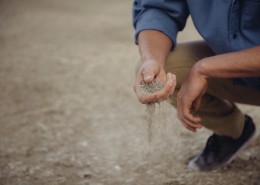Jesus and Worship
Would Jesus ever have “worshipped” like us? Singing songs, dancing or even flag waving!?
Fascinating question! Here’s some bible passages which help us to understand just a bit more about Jesus’s life:
Let’s start with praying:
Heb 5 7 During the days of Jesus’ life on earth, he offered up prayers and petitions with loud cries and tears to the one who could save him from death, and he was heard because of his reverent submission.
And praising:
Luke 10 21 At that time Jesus, full of joy through the Holy Spirit, said, “I praise you, Father, Lord of heaven and earth…
Notice above that Jesus’s prayer was “loud” and his praise was “full of joy”.
Probably not too quiet, then.
What about singing?:
Heb 2 11b So Jesus is not ashamed to call them brothers. 12 He says, “I will declare your name to my brothers; in the presence of the congregation I will sing your praises.”
The Greek word used for “sing” is “humneo”, where we get our word “hymn” from.
Here it is again, also with Jesus involved
Matt 26 30 When they had sung a hymn, (humnos) they went out to the Mount of Olives.
However, you need to avoid misunderstanding the nature of this singing through the use of our word “hymn”. The Greek translation of the Old Testament, (called the Septuagint, and referred to by the latin numeral “lxx”) from a couple of hundred years before Jesus, uses the same word for “sing” here:
Isa 12 5 Sing (lxx Humnos) to the LORD, for he has done glorious things; let this be known to all the world. 6 Shout aloud and sing for joy, people of Zion, for great is the Holy One of Israel among you.”
What sort of event does that conjure up? I don’t think it would be quiet!
So, what about dancing?
Jesus was the descendant of David. Indeed King David was a “type” (bible picture”) of Jesus. So here is how King David worshipped:
2 Sam 6 14 David, wearing a linen ephod, danced before the LORD with all his might, 15 while he and the entire house of Israel brought up the ark of the LORD with shouts and the sound of trumpets.
Notice that dancing was a command to all Israel:
Ps 148 2 Let Israel rejoice in their Maker; let the people of Zion be glad in their King. 3 Let them praise his name with dancing and make music to him with tambourine and harp.
Observant Jews still dance. Often, in Jerusalem, you can see the Rabbis with their disciples, dancing round and singing together.
So, would Jesus have obeyed a direct and clear command to Israel? I think so, but so far the evidence is rather circumstantial. Let’s get on to Jesus himself.
Jesus would certainly have approved of dancing in celebration: in the parable of the Prodigal son, he says when elder brother returned, he heard the sound of the Father’s rejoicing thus: “When he came near the house, he heard music and dancing” (Luke 15 25).
Just note that this parable is meant to represent the rejoicing which God does when we return to him. So dancing is included!
In addition, you may have noticed that observant Jews always move when they pray. They are never to be seen motionless. They sway forwards and backwards. This comes from Psalm 35 10 My whole being (lit “all my bones”) will exclaim, “Who is like you, O LORD?
The point is that if the Bible says that their “bones” should be involved with prayer, then they can never pray without moving. It is called by its Yiddish name “Shucklen”, which means to shake or to rock. We don’t know for certain if this would have been the same in Jesus day, but it has been recorded for over 1400 years.
However, the clincher involves going back to Luke 10 21: At that time Jesus, full of joy through the Holy Spirit, said, “I praise you, Father, Lord of heaven and earth…
The words “full of joy” translate a single Greek word aÓgallia¿w, agalliaoœ, which really means to “leap or dance much, to rejoice with song and dance, to exult, leap for joy” (Bagster)
So the authentic translation of Luke 10 21 starts, “At that time, Jesus, dancing for joy through the Holy Spirit, said…
Why do the translators water it all down? Ah, there lies a tale of cultural norms and personal reticence, unforgivably allowed to affect even the very translation of Scripture.
Now, what about those flags?:
Ex 17 15 Moses built an altar and called it The LORD is my Banner. (Jehovah Nissi)
Banners, flags and standards were part of normal Old Testament life. Each Tribe camped and marched under its own standard, and each family would have its own banner (Num 2 2).
They were also used in battle to identify who was fighting and act as a rallying point, and would be lifted up and waved to strike fear into the enemy (Is 5 26, 11 10, 31 9)
What about use of flags in worship?:
Ps 20 5 We will shout for joy when you are victorious and will lift up our banners in the name of our God.
And here is their use in proclaiming God’s judgment:
Jer 50 2 “Announce and proclaim among the nations, lift up a banner and proclaim it
Other things were waved, too, as part of an offering to God. So we see here the priests waving bread and cake before the Lord:
Ex 29 23b …take a loaf, and a cake made with oil, and a wafer. 24 Put all these in the hands of Aaron and his sons and wave them before the LORD as a wave offering.
And it wasn’t just priests who could wave things before God (though they did most of the waving). Here are ordinary folks getting into it:
Ex 35 22 All who were willing, men and women alike, came and brought gold jewelry of all kinds: brooches, earrings, rings and ornaments. They all presented their gold as a wave offering to the LORD.
And here:
Lev 7 29 “Say to the Israelites: ‘Anyone who brings a fellowship offering to the LORD is to bring part of it as his sacrifice to the LORD. 30 With his own hands he is to bring the offering made to the LORD by fire; he is to bring the fat, together with the breast, and wave the breast before the LORD as a wave offering.
So, waving, both of flags and offerings, was a normal part of the life of Israel. Jesus would certainly have participated in it.
And in the end, Jesus was lifted up like a banner, in a way which he himself foretold:
John 3 14 Just as Moses lifted up the snake in the desert, so the Son of Man must be lifted up
I think Jesus’s worship and praise would have put even the liveliest of our churches to shame!













